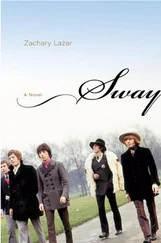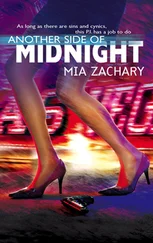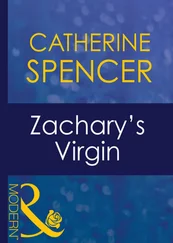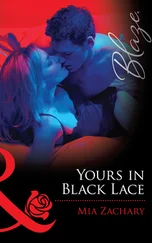— eighteen percent?
— gray. just don’t ask me why it’s eighteen percent
— i won’t. it’s a weird number, though
— the half-way point between black and white
— why do they call it black-and-white photography then? why not gray?
— gray photography just doesn’t sound right, i guess. even though it is more fitting, since it reflects everything in nuances of gray.
— do you still want me to hold this card?
— the beauty of every photograph, Stella, is in the development of its middle values, in the gray. black and white are simply extremes without which even the most interesting negative seems to be lacking contrast. the life of photographs is actually in their middle values
— i understand. so we keep going?
— we keep going
*
Ohio was as flat as a parking lot and almost equally as interesting, compared to the sidewalks of New York with which Stella fell in love. I, on the other hand, could not wait to accelerate my life in what I believed was America’s fastest lane: Los Angeles. We said goodbye to our friends in Columbus, rented a U-Haul, packed everything we owned, and set off for California.
If you are debating about whether or not to share your life with someone, try getting in a vehicle and driving together for five days. Had the honeymoon preceded the wedding, how many marriages would never have happened, how many emotions would go unwasted?
The four days during which Stella and I crossed the continent were some of the finest of our lives.
When we arrived in Los Angeles, a murky red sun was setting in the Pacific Ocean at the same time that an impossibly big moon was rising over the hills. We kissed between the two for a long time. It felt like we were on a movie set.
The first couple of weeks, we lived in a hotel. Stella went to nine interviews with reliable employers who were supposed to call her at any moment. The moment stretched into weeks.
Things did not look much brighter for me, either. A few months after we moved, there was only one place left where I had not shown my portfolio. Two of the art directors I was absolutely sure would employ me did not even return my calls. Three others stood me up about eleven times. In the end, I was happy to be given a chance to show my portfolio to four more people, three of whom were receptionists. In two publishing companies, I was patted on the shoulder with the promise of a call “as soon as something comes up.” Nobody had told me then that this was the way people talk in L.A. I had mistaken their words for truth. I had taken their small talk for promises.
In the waiting room of a small magazine — my last resort — I spent an hour and a half watching people go in and out. I was reading the Employment Opportunities section of a forgotten Sunday paper. In the Photography section, there were five ads altogether — two for school photographers, one for a gig photographing dogs and newborn babies, and one for printing in a large black-and-white lab. Because the ads were in alphabetical order, my eyes were drawn to the previous section— Pharmaceutical —where the job openings were two pages long.
“Fred, where are we going for lunch?” I was startled when I heard the familiar voice of the art director with whom I had had several very promising conversations when I was harmlessly far away in Ohio. I realized that I had been sitting there the whole morning. A slender, dark-haired man wearing an Armani blazer walked energetically out the door. We finally “met in person.”
Steven.
He held my hand a beat longer than normal. His palm was small, dry, and a few degrees softer than mine. He looked me in the eye with a stare in which there was nothing even remotely resembling anything but indifference. We were in the hallway. I started telling him how long I had worked on this and that, and how we had just moved, and how I could not wait to. .
“Zack,” he interrupted me. “Do you have a web site?”
“No, but I have my portfolio right here.”
“Zack, do me a favor. Leave it with Jennifer, will you? When I come back from lunch, I’ll look at it and I’ll call you later this week.” Australian accent? South African?
Steven’s cell phone rang, he picked it up, his face lit up, he dug in his blazer pocket, and waved goodbye to me, holding car keys on a BMW key chain. He turned around, and walked down the hallway, joyfully rushing toward his lunch with Fred. I watched his Armani getting smaller and smaller in the gray hallway. I wanted to be naïve then. I wanted to be able to trust people. Even people with soft palms, Armani suits, fake British accents, and empty blue eyes. . oh, how I wanted that! I so knew that the phony would never call me. And he didn’t.
*
Since I was a kid, I’ve always liked to look in pawn shops to see what people have left there to earn a few bucks. Now, however, I’m only interested in this place’s music collection. The owner has just opened the shop. It’s dim, with that typical stale smell mixed with the odor of carpet-cleaning products. I start digging through a bunch of tapes and CDs of jazz, soul, rock and roll. My trip will be long and — I hope — uneventful, so instead of searching the radio stations, I want to listen to music I choose myself. The owner looks at me with a blend of suspicion and suppressed curiosity. Perhaps he is waiting for me to start looking over my shoulder toward the door before reaching into my back pocket and pulling out a golden ring for sale. Instead, I grab a few albums by Sting, Louis Armstrong, Joey di Francesco, Al Di Meola, U2, Thelonious Monk, Tupac Shakur, and Paganini. I had just pulled out a twenty dollar bill to pay when I notice the camera display. Cheap, two or three pixel digital cameras, old broken film junk, Polaroids, cracked flashes, scratched, odd-sized filters. . What catches my eye, though, is a deeply scarred Nikon FM body with a crooked prism and a worn-out 50 mm lens. What has this guy been through? Who’s left it here? I ask if I can take a closer look. The owner unlocks the display and hands it to me. Up close, it looks even worse. Sad, lonely, and distrustful is this Nikon. As if he understands that he doesn’t belong here. But even if he had not been in this prison, he would not have found a place for himself in this silicon-operated, digital photo-universe with countless automatic functions. He is one aging analog model with an ordinary lens and a manual focus — too much of past, a sad present. No future.
I try its shutter speeds one by one — they seem just fine. It even has a working battery in the light meter. I point it outside and it seems to measure the light accurately — f 8 at 1/16 of a second. At this time of day, with 100 film, that’s what I would expect. The shutter blades sound like they should — with that barely perceptible metallic ring. The manual focus is not that great, but still, it’s OK. How much? One hundred and fifteen dollars. I don’t even try to negotiate. The owner swiftly grabs the crisp bills from my hand before I change my mind. I ask where the closest photo store is. He steps outside to show me which way to go and how many blocks to drive south before turning right. I find it easily. The store clerk is an old-timer with thick prescription glasses. By the register, there is a large bin full with out-of-date film stock on sale — seventy-five cents a piece. I buy a few color Fuji’s and twenty-five black-and-white, long-expired rolls of Ilford and Kodak. I ask if the store carries developing chemicals. The clerk laughs — who deals with developing nowadays? Everybody shoots digital. Why don’t I buy a digital camera? These right here, for example, are on sale.
Читать дальше












